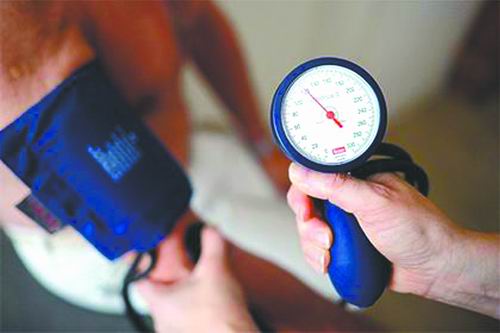The clock test can detect the risk of dementia in patients with hypertension in advance
The clock test can detect the risk of dementia in patients with hypertension in advance
August 31, 2018 Source: China Science News Author: Ma Chen
Window._bd_share_config={ "common":{ "bdSnsKey":{ },"bdText":"","bdMini":"2","bdMiniList":false,"bdPic":"","bdStyle":" 0","bdSize":"16"},"share":{ }};with(document)0[(getElementsByTagName('head')[0]||body).appendChild(createElement('script')) .src='http://bdimg.share.baidu.com/static/api/js/share.js?v=89860593.js?cdnversion='+~(-new Date()/36e5)];
From August 25th to 29th, the 2018 European Society of Cardiology Annual Meeting (ESC2018) was held in Munich, Germany. The meeting report pointed out that patients with hypertension should regularly perform a clock test of cognitive dysfunction.
The study found that patients with impaired cognitive function gradually increased their risk of dementia within 5 years. Although the association between these two diseases has long been known, routine testing of cognitive function has not been performed in patients with hypertension.
Dr. Augusto Vicario of the Cardiovascular Research Center in Buenos Aires, Argentina, pointed out in the report that “the selection of experiments that require patients to draw on the dial at specific times is a convenient way to check for cognitive impairment in patients with hypertension. At the same time, it provides an opportunity for doctors to intervene before the patient's dementia occurs."
In contrast to the previous Mini Mental State Examination (MMSE), the Argentine Heart and Brain Disease Research Center used a clock test to test 1,414 people with cognitive dysfunction recruited from 18 heart and brain disease centers in Argentina. Hypertensive patients. The average age of these subjects was around 60 years, of which 62% were female and their mean blood pressure was 144/84 mmHg.
In the clock test, the researchers distributed to each patient a piece of white paper with a 10 cm diameter circle. They first write the time number of the clock in the correct position of the circle, and then draw a specified time of 3:40 on the "clock" as required. Based on the final clock test results, the researchers divided patients into normal, moderate, or severe cognitive impairments. However, the Mini Mental State Examination (MMSE) is an 11-question question with a score of 30, and then the patient is divided into normal (24~30), moderate (19~23) or severe (0~17) according to the score. Cognitive impairment.
The researchers found that patients with severe cognitive impairment who passed the clock test had a 15% higher rate of detection than the former with a simple mental state test (MMSE). One-third of patients who were cognitively normal in the Mini Mental State Examination (MMSE) had abnormal results in the clock test, especially in middle-aged and elderly patients.
Dr. Augusto Vicario pointed out, “If hypertension is not treated, it will gradually damage the arteries under the cerebral cortex and prevent communication between the subcortical and frontal lobes. This dislocation can lead to impaired 'execution function', such as vision. Space, detail memory, planning, decision making, etc. Then, the clock test can be used to detect the capabilities associated with these executive functions, but the Mini Mental State Examination (MMSE) only detects several other cognitive abilities and is related to the executive function. Ability has nothing to do."
The study also found that the results of the clock test can be used to detect the basis of silent vascular injury in the brain and can be used to determine the risk index of dementia in hypertensive patients. The clock test also found that more than one-third of patients with dementia had a very high risk index.
Finally, Dr. Augusto Vicario concluded that the clock test can be used as a routine screening tool for cognitive decline in hypertensive patients, but further research is needed to determine whether lowering blood pressure can prevent the onset of dementia. (Ma Chen)
Chinese Journal of Science (2018-08-31 8th Edition Health)
Squid Food,Frozen Squid,Frozen Squid Tube,Frozen Squid Ring
ZHOUSHAN JING YUAN FOOD CO.,LTD , https://www.genho-food.com
